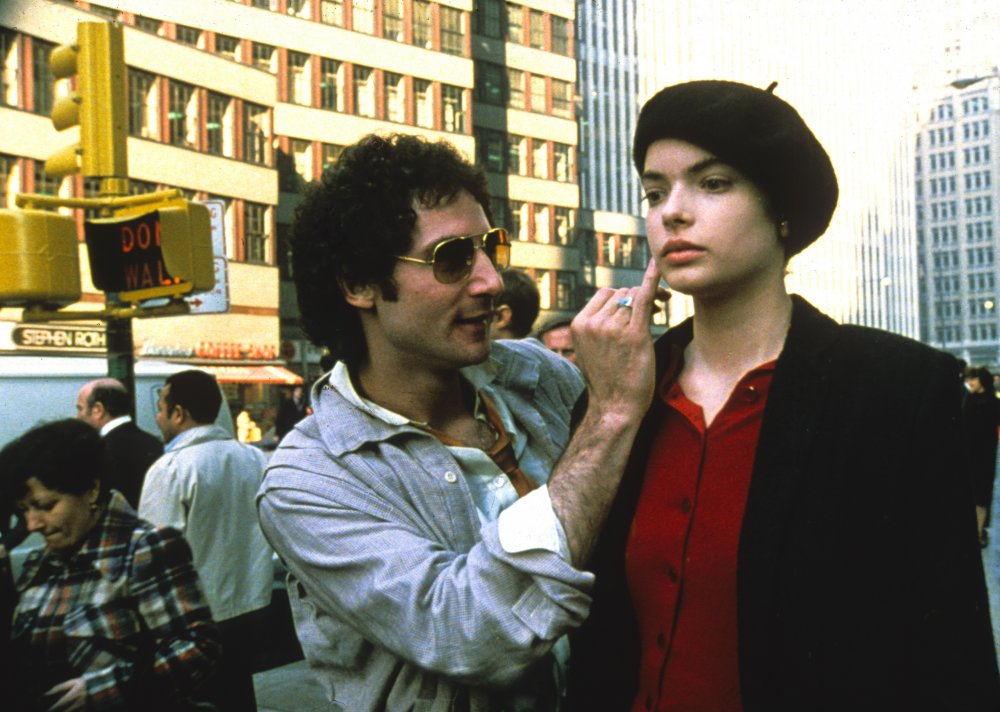
“In the end, these are movies about redemption and what it means to be redeemed, whatever the struggle in getting there.”
Abel Ferrara has worked with many actors—including Willem Dafoe, Victor Argo, and Christopher Walken—but the most interesting among them may be Zoë Tamerlis Lund. Lund’s career as an actress was limited; she compiled ten acting credits from 1981 through 1997 and died at 37 in 1999 following a drug overdose. She only appeared in two of Ferrara’s films: Ms .45 (1981) and Bad Lieutenant (1992); however, her performances in these films allowed the director to inject some levity into his destructive characters and, ultimately, helped him craft his most recognizable work.
Lund made her acting debut at the age of 17 in Ms .45, the film Abel Ferrara made after the video nasty The Driller Killer. Written by Nicholas St. John, Ms .45 features Lund as a mute seamstress named Thana (from Thanatos). While going home from work, two men separately sexually assault her. This ordeal transforms her into a spree killer, targeting and shooting men, regardless of whether they intend her any harm. Rarely does one see such a face, both imprisoned by trauma and able to deal out forceful consequences.
Scenes that might have felt cheap and repetitive succeed through Lund’s character’s righteousness. Her fatalism has a manic arc that goes from justifiable to terrifying; as the film progresses, her killings transform from personal revenge into a type of ritual. Most of the men she targets act brash, domineering, and defensive. At the film’s climax, an office Halloween party—for which she dresses up as a nun with red lipstick—she murders her boss, who had made regular sexual advances on her. She then kills many of the other men in the office. It is not difficult to see the film’s arc metaphorically: Thana expressing her cathartic rage against the greater patriarchy. A female colleague then knifes Thana in the back, killing her. Lund’s vulnerability in the film is propelled by surrounding colleagues, who speak as if they are afraid of her: an omen derived of some evil, rather than a woman who had lost her sense of agency.
Lund’s face carries the heavy burden of the trauma Thana experiences: Thana’s shyness and anger are echoed by Ferrara’s choice of color palette; he paints a dirty New York environment in suppressed colors, which complement in tone the abuse suffered by Thana (and all those like her). This murkiness keeps the film from devolving into a black-and-white fantasy, embedded in hopelessness, about how victims respond to abuse, which often is how rape-revenge films’ messages turn.
Together, Zoë Lund’s and Abel Ferrara’s personae create an intense, complementary juxtaposition of masculinity and femininity. Although Lund deemphasizes the view that Ms .45 is a pro-woman film, “any more than it is pro-garment worker, whatever.” Their second and final collaboration, Bad Lieutenant (for which Lund co-wrote the screenplay with Ferrara, and in which the role she played, a heroin addict, was far smaller than her role in Ms . 45), is certainly more macho—but unlike in Ms .45, where her hero does not forgive, Bad Lieutenant remains open to salvation’s possibility in even the worst of men. Nancy Ferrara, Abel’s (now-ex-) wife, told New York magazine that Keitel’s lieutenant combines “the lowest, filthiest aspects of Harvey [Keitel], Zoë, and Abel together.” In the same New York article, Lund rejects disgusted reactions to the film’s portrayal of drugs and degradation, instead calling it a “contemporary Christ story”: “‘For God’s sake,'” Lund said she told people who shared with her their distaste, “‘Jesus hung out with whores and tax collectors, and his first miracle was turning water into wine. He might turn salt to drugs at a party nowadays.'”
For the viewer, perhaps, the film is a bit hard to swallow, since the person central to the film is contemptuous on virtually every level. Harvey Keitel plays the titular Bad Lieutenant (credited as LT), but the character is more complicated than merely bad. We witness Keitel wreaking havoc as a corrupt detective, whose addiction to drugs, gambling, and sex seemingly has no end. But for the viewer, the constant question of redemption extracts Keitel’s self-destructive character from the depths of his morass. LT is the mean-spirited twin to Keitel’s Charlie Cappa in Mean Streets, doubling down on the latter’s “You don’t make up your sins in church. You do it in the streets and at home.” LT’s decadence is laid equally bare in brothels, dens, churches, nightclubs, and when he is on the job, where he abuses his badge in taking advantage of the law.
When a nun is sexually assaulted in the church, and as his investigation reaches its crux, LT realizes that she is willing to forgive her perpetrators instead of taking vengeance against them as he prefers. This revelation is not easy for LT to process, because the trail of degeneracy, stripped bare by Ferrara’s gritty aesthetic, permeates his very being. Ephesians 4:25-32 states that to repent for decadence requires helping to build up others according to their needs, so that it may benefit those who listen, particularly when it comes to unforgivable acts in and outside of the church. Lund told Filmmaker magazine upon the film’s release that while the nun is suffused with moral failure, she also holds an “acute moral consciousness” that reveals the needed dignity counteracting LT’s nihilism.
In the end, these are movies about redemption and what it means to be redeemed, whatever the struggle in getting there. In Christian theology, redemption involves moving away from sin and closer to God. For Catholics, guilt is a recurring challenge.
Ferrara eventually converted to Buddhism, after spending most of his life as a Roman Catholic. Zoë Lund depicts the Catholic religious dynamics underlying Ferrara’s filmmaking quite palpably—and not just because in both pictures she is dressed as a nun and experiencing the worst things a woman could ever go through. The characters she played never lost their religion, and her portrayals ultimately provided an authentic lens for examining people on the edge.
Adrian Nguyen is a writer based in Sydney, Australia. His articles about politics and cinema have been published at Quillette, Penthouse, Areo, Arc Digital, and Splice Today. He can be found on Twitter @lackoftaste or at his Substack newsletter, Lack of Taste.










